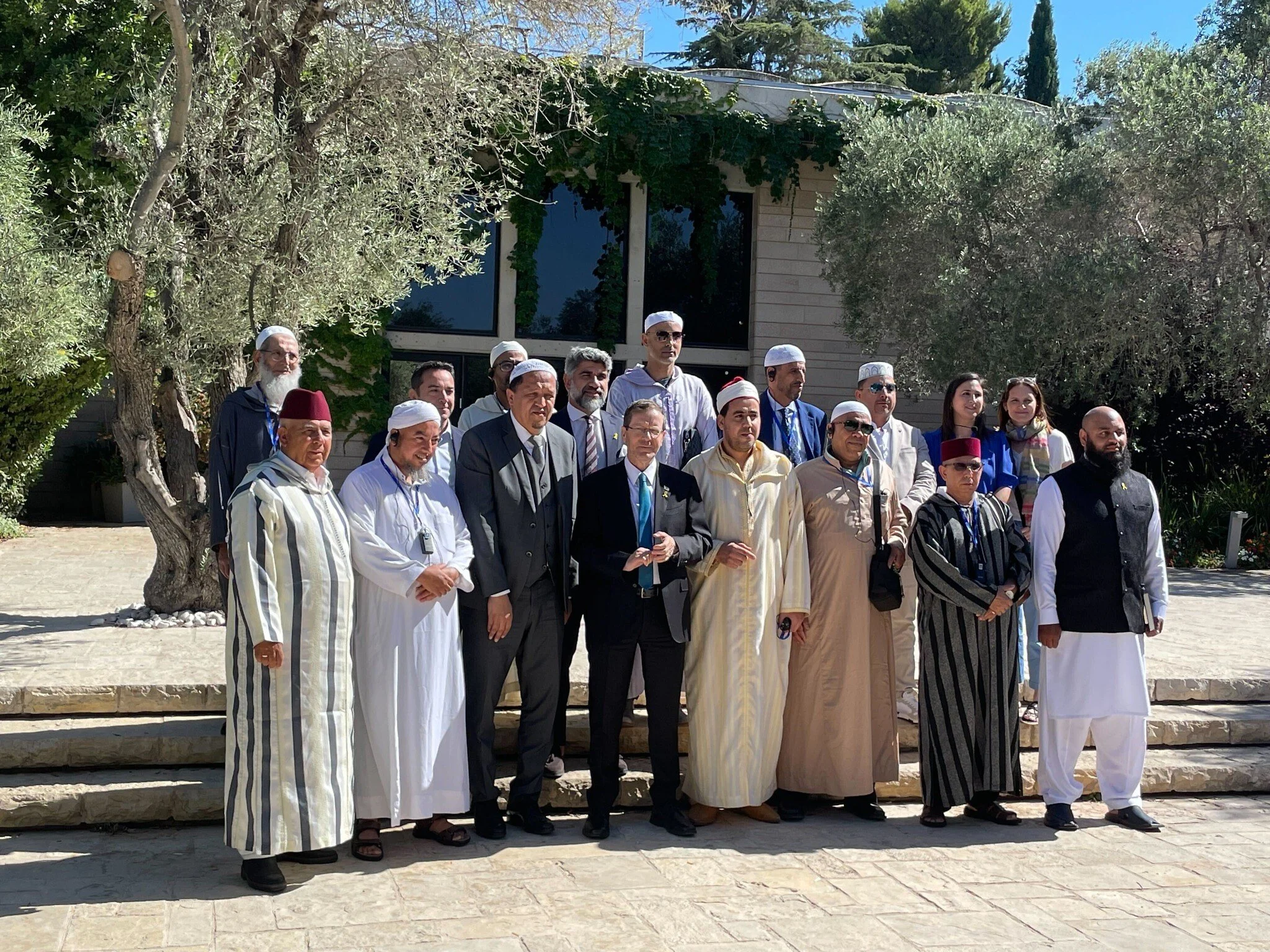Controversial Visit Sparks Outrage Among Muslim Leaders in the Netherlands and Morocco
A recent visit by Moroccan-Dutch imam Youssef Msibih to Israel has caused a significant stir within the Muslim community, leading to his suspension from his position at the Bilal Mosque in Alkmaar. The visit, which involved meeting with Israeli President Isaac Herzog, was organized by the European Leadership Network (ELNET), an NGO focused on strengthening Europe-Israel relations.
Suspension of Imams and Reactions from the Mosque
Msibih, who had been serving at the Bilal Mosque for years, was suspended immediately after joining the delegation. The mosque’s board issued a statement on Instagram, stating that there is no place for the imam within the mosque. They emphasized that they bear no responsibility for his actions or statements outside the mosque, clarifying that there is no longer any formal or substantive relationship between him and the mosque.
The statement further highlighted that Msibih acted in a personal capacity, separate from the mosque’s vision and community. It also mentioned that there is no room for troublemakers or division, indicating the mosque’s stance against such actions.
Meeting with Israeli President
During the meeting with President Herzog, photos and videos shared by the Israeli President’s official X account showed Msibih dressed in traditional Moroccan attire, singing a reinterpreted version of the Israeli national anthem in Arabic. This gesture sparked mixed reactions, with some viewing it as a symbol of interfaith dialogue and others as an act of betrayal.
The delegation included 15 Muslim religious figures from across Europe, including France, Italy, Belgium, the UK, and the Netherlands. Their itinerary featured visits to the Knesset, religious sites in East Jerusalem, and meetings with Israeli military officials and survivors of attacks. They were also scheduled to visit Yad Vashem, Israel’s Holocaust memorial, and the site of an Iranian missile strike in Tel Aviv.
President Herzog welcomed the group, emphasizing the importance of Jewish-Muslim dialogue and framing the visit as a symbol of progress against radical forces.
Key Figures in the Delegation
The group was led by Hassen Chalghoumi, a polarizing imam from Drancy, France, known for his pro-Israel stance. Other members included Noor Dahri, a UK-based counterterrorism commentator affiliated with the Henry Jackson Society, and Ali El Aarja, an imam of Moroccan descent based in Turin, Italy.
El Aarja, who heads the newly formed Italian Islamic Confederation (CIIN), stated that Morocco is a country open to all religions, where Muslims, Christians, and Jews live together. He expressed hope for peace and dialogue, emphasizing that the delegation aimed to send a message of peace for both Palestinian and Jewish brothers.
Backlash from Muslim Clerics in the Netherlands and Morocco
The visit triggered strong backlash from Muslim clerics in the Netherlands. On July 7, the Initiative of Imams and Preachers in the Netherlands issued a scathing condemnation, calling the trip a “morally reprehensible act” that violates the principles of Islam and human dignity. The body accused the delegation of helping the “Zionist occupation regime” whitewash its image “tainted with the blood of innocent men, women, and children.”
In Morocco, the Moroccan Observatory Against Normalization condemned the visit as a “beyond-normalization crime,” calling it a betrayal of religion and human values amid Israel’s ongoing war in Gaza. In a statement shared on Facebook, the group denounced the delegation’s members as not representing European imams.
Conclusion
The controversy surrounding the visit highlights the complex dynamics within the Muslim community regarding engagement with Israel. While some see it as a step towards dialogue and understanding, others view it as a betrayal of Islamic values and a dangerous normalization of the occupation. The situation underscores the need for careful consideration and dialogue in addressing such sensitive issues.







